Costa Mesa church, building anew, honors structure that sheltered Ukranian refugees
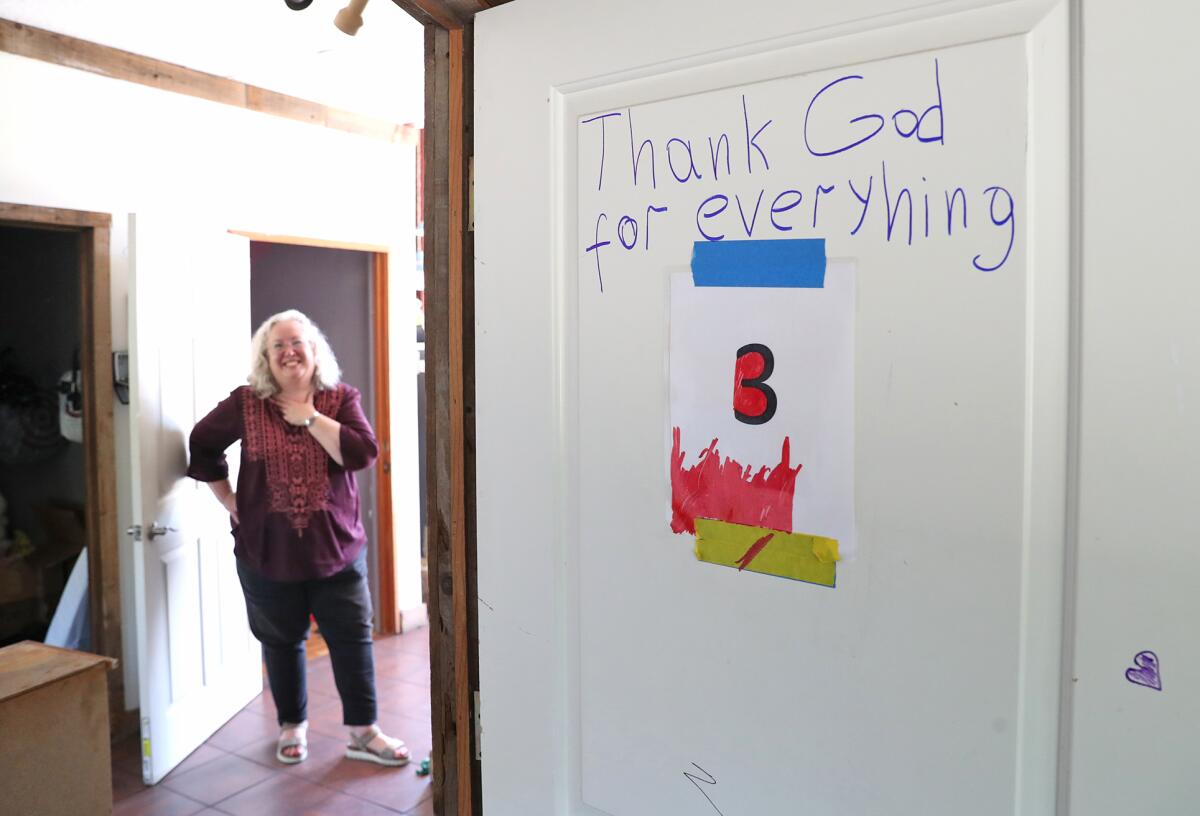
A two-story building on the campus of Costa Mesa’s Orange Coast Unitarian Universalist Church will in the coming days be demolished to make room for a new sanctuary under a renovation plan several years and $3 million in the making.
Although historically used for an ancillary purpose, primarily as a communal space for Sunday morning coffee meetings, the structure recently served as a different kind of sanctuary — sheltering 139 Ukrainian refugees escaping a war-ravaged homeland.
Orange Coast UUC leaders and congregants gathered Sunday alongside some of the shelter’s erstwhile inhabitants in a symbolic groundbreaking ceremony to celebrate the new plans for the site and honor a grassroots effort to provide a safe haven for those in need.
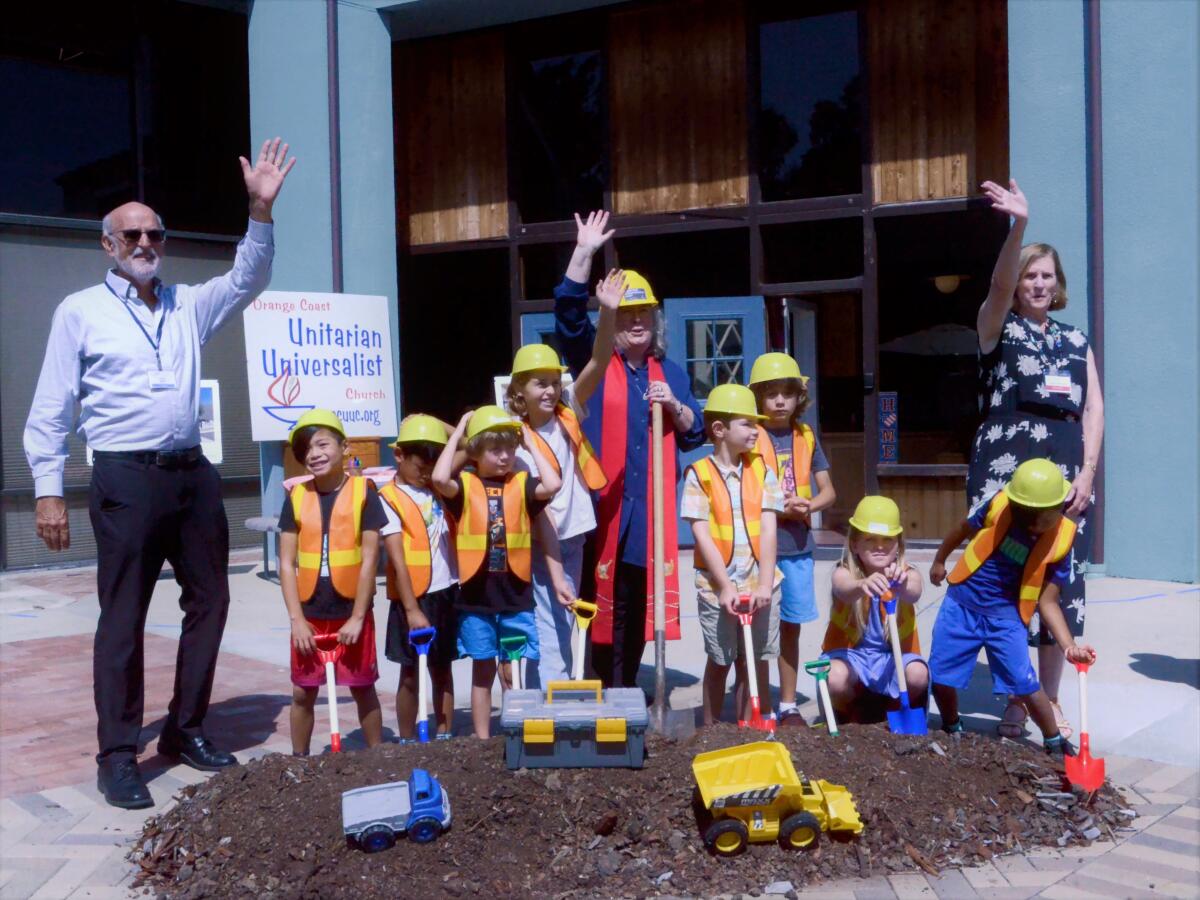
“The shelter, which has been a symbol of resilience and unity, concludes its operation this month, making way for the construction of the new sanctuary,” Rev. Sian Wiltshire said at the ceremony. “This transition marks the end of a chapter but signifies the beginning of a new era for the church and its commitment to serving the community.”
In an interview with the Daily Pilot on Tuesday, Wiltshire explained the building plans had practically been in the works for as long as the day church leaders purchased the property and its three buildings — located at 2845 Mesa Verde Drive East — in 2013.
A capital campaign started gaining steam around 2018 and 2019, when the cost of a new sanctuary building had a $1.8-million price tag. Then COVID-19 struck, halting plans in their tracks.
A backlog of projects and permits at Costa Mesa City Hall caused further delays that, due to supply chain issues and inflation, drove up the cost of construction to about $3 million and necessitated more fundraising for the 140-member congregation.
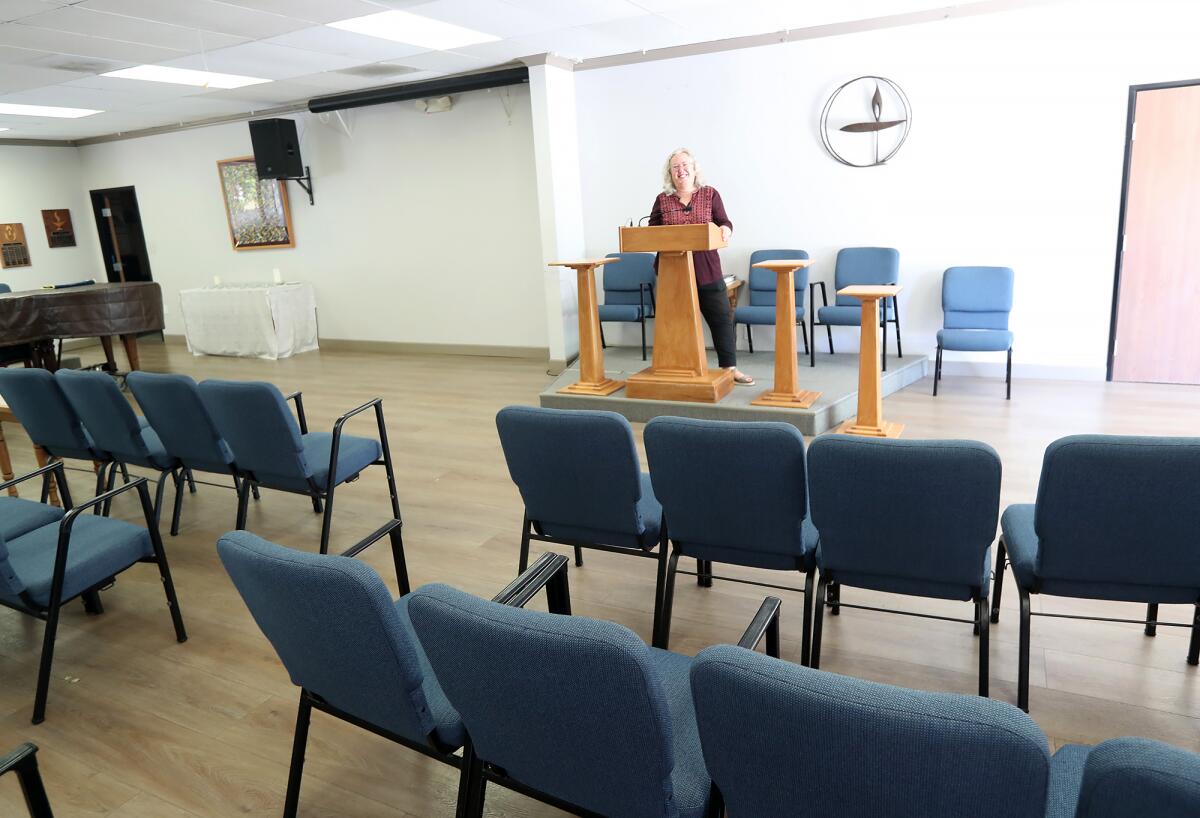
Although the long lag time ended up hiking the cost of the renovation, the unforeseen delay turned out to be a blessing in disguise, Wiltshire reasons, as it ultimately allowed the vacant structure to serve as ad hoc housing, when one congregant’s volunteer efforts to help Ukrainian refugees came home to roost in Costa Mesa.
Tatiana Houser, a member of Orange Coast UUC for the past four years, recalled watching the news of the war in Ukraine and being filled with a particular dread. Having come to the U.S. in 1999 from Omsk in Russia, and having a father from Ukraine, she had loved ones on both sides of the conflict.
“It was definitely a shock, absolute devastation when the war broke out,” Houser, 44, recalled Tuesday. “And because of my heritage it was emotionally impossible for me. I was at a very low point in my life. It was like there was nothing you can do, absolutely nothing, it’s just going to be awful.”
Wanting to do something, Wiltshire and congregants organized regular rallies outside the Costa Mesa church as a plea for peace. But Houser felt called to do even more.
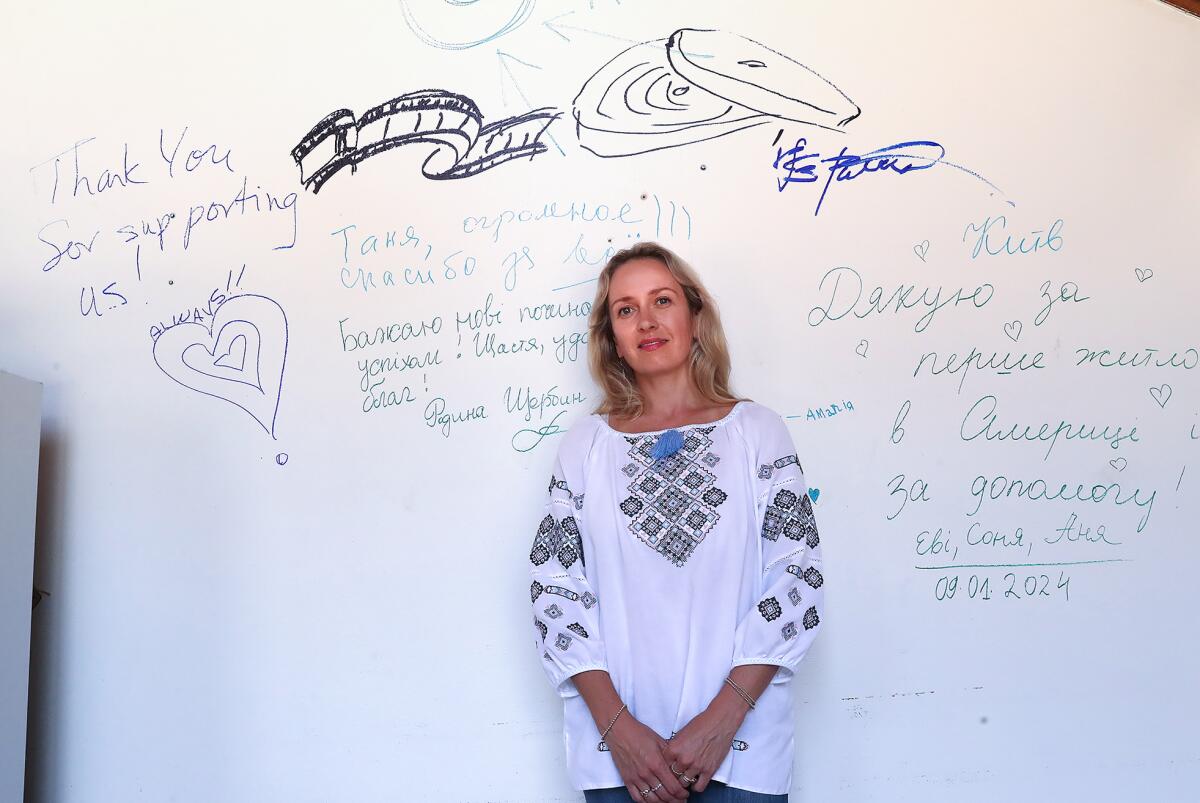
When the Costa Mesa resident learned the Biden administration was allowing refugees through the country’s southern border without the threat of deportation, she went with a friend to San Diego and met up with the nonprofit humanitarian aid organization Nova Ukraine. They were looking for churches that would be willing to sponsor individuals and families.
“I left [San Diego] with a family of four in my car, and I brought them to my mom’s apartment, it was available because she was traveling,” Houser said. “They had nowhere else to go.”
She reached out to Wiltshire to see if OCUUC might help and, in no time at all, the close-knit community sprung into action.
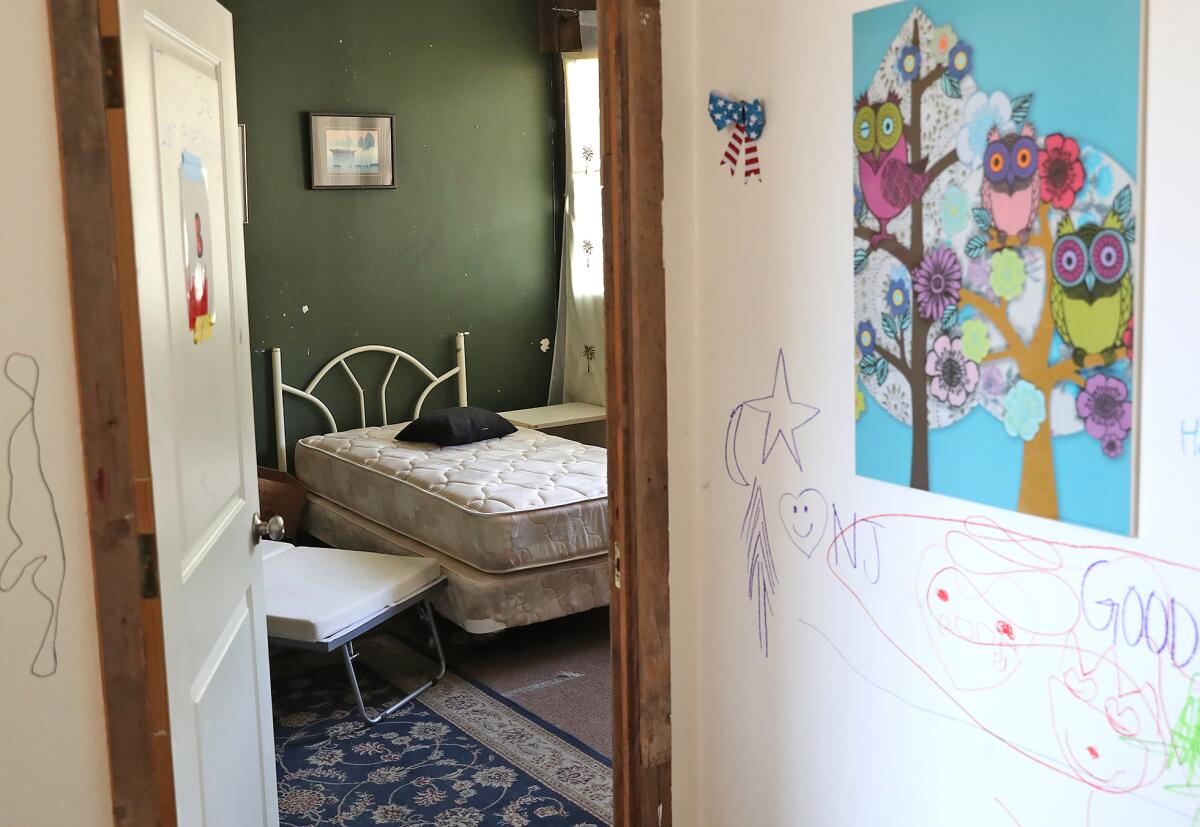
“We had a committee and within just a few days we managed to get the whole church donating bedding and cots,” the minister recalled. “I remember our first families. It was late at night, and two of my wonderful congregants drove down to the border and picked them up.
“They brought them back, and we had these wonderful people. And then it just started filling up after that.”
As the war raged on, and American protocol for accepting refugees changed, Orange Coast members shifted to sponsoring individuals and families who’d come through airports with visa clearance that extended sheltering needs to months-long periods.
Local families helped the newcomers fill out the required documentation, registering them in the system and helping them secure temporary work permits, driver’s licenses and emergency benefits and even helping them apply for jobs or register their children in school.
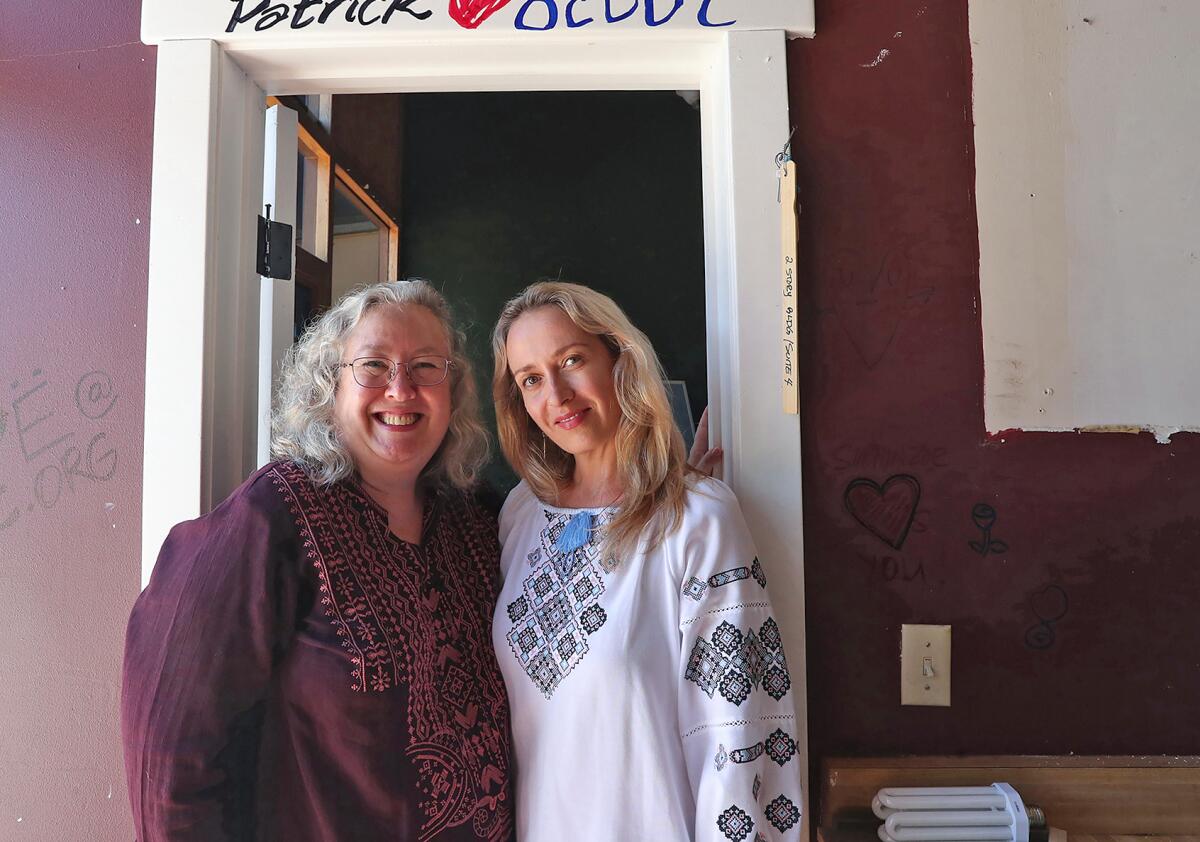
As the weeks wore on, that assistance evolved into helping the displaced Eastern Europeans find more permanent living situations, allowing new waves to occupy the bedrooms inside the church’s shelter.
“The community, it was such a beautiful thing,” Houser said. “We had people from the church and community bringing things, making food, bringing furniture. We had church members come and teach English. We had seven cats and six dogs, so people would bring treats and pet food.
“People donated cars, some people donated money — it was just incredible.”
At Sunday’s groundbreaking, church leaders welcomed those for whom the old building had provided sanctuary, inviting them to write messages on the soon-to-be-demolished walls.
Although their words of gratitude, some penned in English, others in Ukrainian, will last but a moment, what happened inside those walls will live on in the collective memory of the Orange Coast UUC community, Wiltshire said.
“It will be interesting to see how this impacts us and where we’ll go next. I think the important thing is our congregation knows we can do this. We’ve got the chops.”
All the latest on Orange County from Orange County.
Get our free TimesOC newsletter.
You may occasionally receive promotional content from the Daily Pilot.




